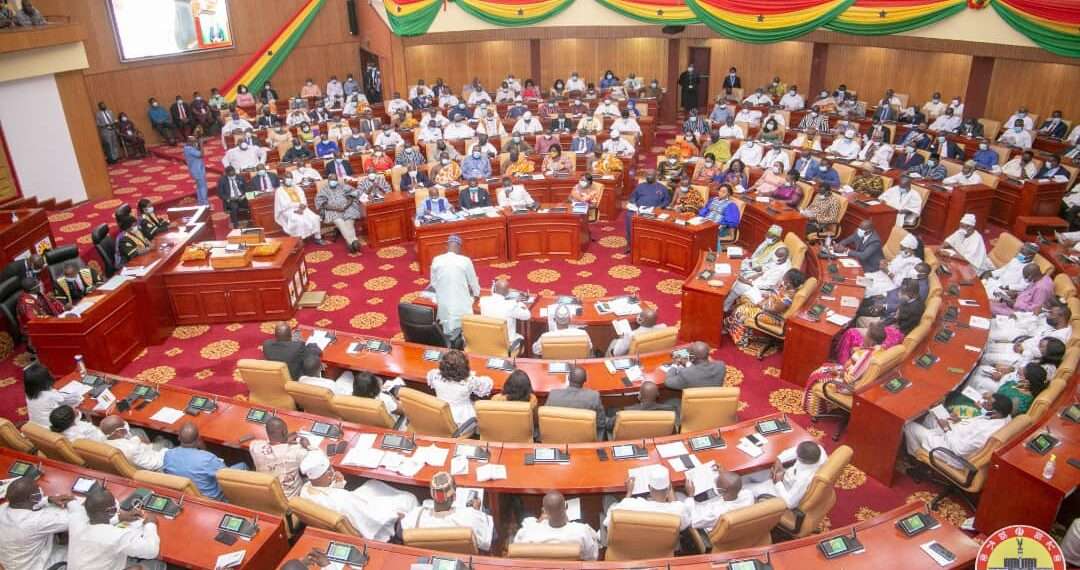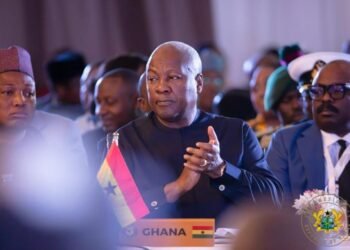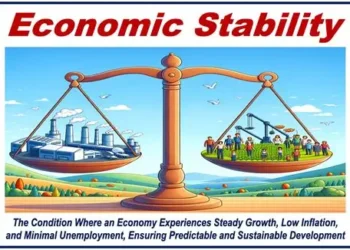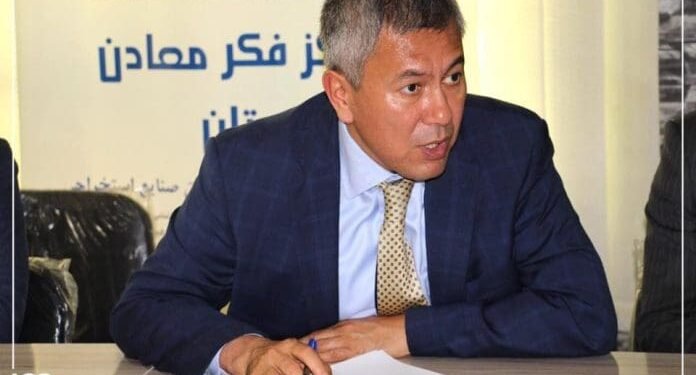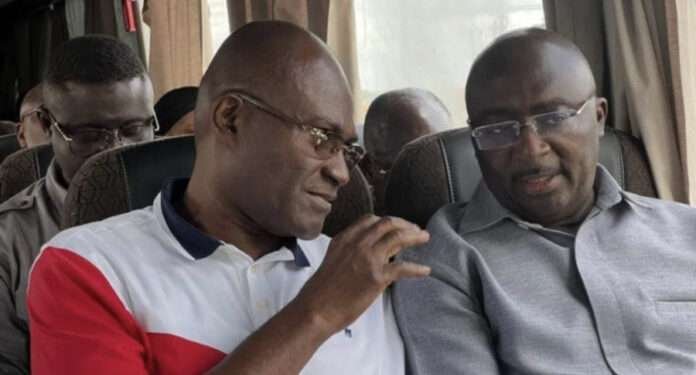As Ghana’s Parliament prepares to reconvene this week, a storm is brewing over which party holds the majority in the House.
The issue, ignited by recent declarations from several New Patriotic Party (NPP) MPs to run as independent candidates in the 2024 elections, has triggered a fierce debate over such actions’ constitutional and political implications.
The former Minority Leader and MP for Tamale South, Hon. Haruna Iddrisu, has already thrown down the gauntlet, urging the NPP’s Majority Caucus to vacate their leadership position and allow the National Democratic Congress (NDC) Minority to take over as the new majority.
These developments have sparked controversy among supporters of both the NPP and NDC, with the opposition sensing an opportunity to seize the majority leadership in Parliament.
At the heart of the issue is whether the NPP’s thin majority can withstand the defection of these MPs and how the constitution interprets such shifts in political allegiance.
Professor Stephen Kweku Asare, a renowned legal scholar, and constitutional activist, in a compelling argument, provided a detailed analysis of the matter, offering a comprehensive breakdown of the constitutional provisions at play.
Haruna Iddrisu’s call for the NPP to step aside underscores the gravity of the situation, but Professor Asare believes that legal clarity must guide the resolution of this issue, not political gamesmanship.
The NPP’s majority, already narrow, faces fresh challenges with three of its MPs having declared their intention to run as independent candidates in the upcoming general elections.
“The current Second Deputy Speaker, an independent MP, has filed to contest the 2024 elections on the NPP ticket. In contrast, Cynthia Morrison, an NPP MP, has filed to run as an independent candidate in 2024.
“His Worship Victor Kusi, a district court judge, has reportedly enjoined her, though his reasons and jurisdiction remain unclear to GOGO. Suame Krobea, who now works as a newspaper editor & politician, has advised me that another NPP MP, K. Asante, has also decided to run as an independent”.
Professor Stephen Kweku Asare, D&D Fellow in Public Law and Justice at CDD-Ghana
Misinterpretation of the Law
According to the Democracy and Development Fellow in Public Law and Justice at the Ghana Centre for Democratic Development (CDD-Ghana), Professor Asare, much of the controversy surrounding these MPs’ declarations stems from a misunderstanding of the relevant constitutional provisions.
He pointed to Article 97(1)(g) and (h) of the 1992 Constitution, which outlines the conditions under which a Member of Parliament must vacate their seat.
The article, he noted states that an MP must vacate their seat if they leave the party under which they were elected to join another party or seek to remain in Parliament as an independent member. Likewise, an independent MP must vacate their seat if they join a political party during their term.
However, Professor Asare argued that these provisions only apply during an MP’s current term and do not concern an MP’s actions or intentions for the next parliamentary cycle.
In essence, while an MP is prohibited from “carpet crossing”—switching party allegiances or declaring independence during their term—there is no constitutional barrier to an MP filing to contest as an independent in the next election.
“The law’s purpose is to maintain political stability and prevent opportunistic shifting of allegiances by MPs during their term,” Prof. Asare explained.
He emphasized that the law aims to preserve the electoral mandate by ensuring that MPs remain loyal to the political platform under which they were elected, thereby avoiding disruptions to parliamentary representation and party dynamics.
“Some point to Speaker Ocquaye’s ruling in the 7th Parliament when the current Second Deputy Speaker, then an NPP MP, filed as an independent. The Speaker ruled that the Fomena MP had vacated his seat.
“At the time, I argued that Speaker Ocquaye’s ruling was incorrect. The NPP should have stood on principle and rejected the ruling, but instead, they either followed it or orchestrated the situation”.
Professor Stephen Kweku Asare, D&D Fellow in Public Law and Justice at CDD-Ghana
Now, as Parliament faces a similar dilemma, Professor Asare hopes that the current Speaker will not follow Prof. Ocquaye’s precedent and will instead apply the law correctly.
He reiterated that Article 97(1)(g) and (h) do not apply to an MP’s candidacy for future elections, only to their actions during their term in office.
As such, he emphasized that the declarations of Morrison, Asante, and the Second Deputy Speaker should not automatically trigger the vacating of their seats.
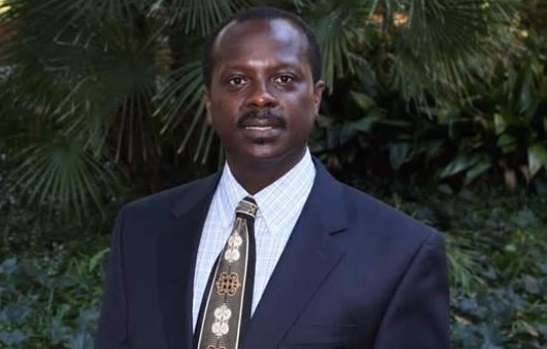
Political Gamesmanship and Legal Process
Professor Asare also warned against the politicization of these legal provisions, stressing that only the high court has the authority to declare a parliamentary seat vacant.
He strongly posited that any such declaration by the Speaker, MPs, or political parties would be unconstitutional and subject to judicial review.
“We are tired of political gamesmanship distorting our laws. Let’s do the right things at all times, not just go for short-term partisan gains”, Prof. Asare asserted
His remarks are a pointed critique of the tendency in Ghanaian politics to manipulate legal interpretations for political advantage, often to the detriment of the rule of law.
Prof. Asare’s call for restraint and legal fidelity reflects a broader frustration with how political actors often prioritize immediate partisan gains over long-term constitutional principles.
The implications of these developments are significant. If the NPP loses control of its slim majority, the opposition NDC could seize the opportunity to assert its dominance in the 8th Parliament, with far-reaching consequences for the legislative agenda.
Haruna Iddrisu’s call for the NPP Majority Caucus to step aside is not just political posturing; it reflects a real possibility that the NPP’s internal fractures could lead to a reshuffling of power in Parliament.
For the NPP, the stakes are high. With several MPs breaking rank, the party’s unity and ability to maintain its legislative influence are in serious doubt.
These defections, combined with legal ambiguities and potential judicial interventions, could weaken the party’s standing in the final stretch of the 8th Parliament and into the 2024 elections.
READ ALSO: Walz Makes Campaign Appearance In Michigan

